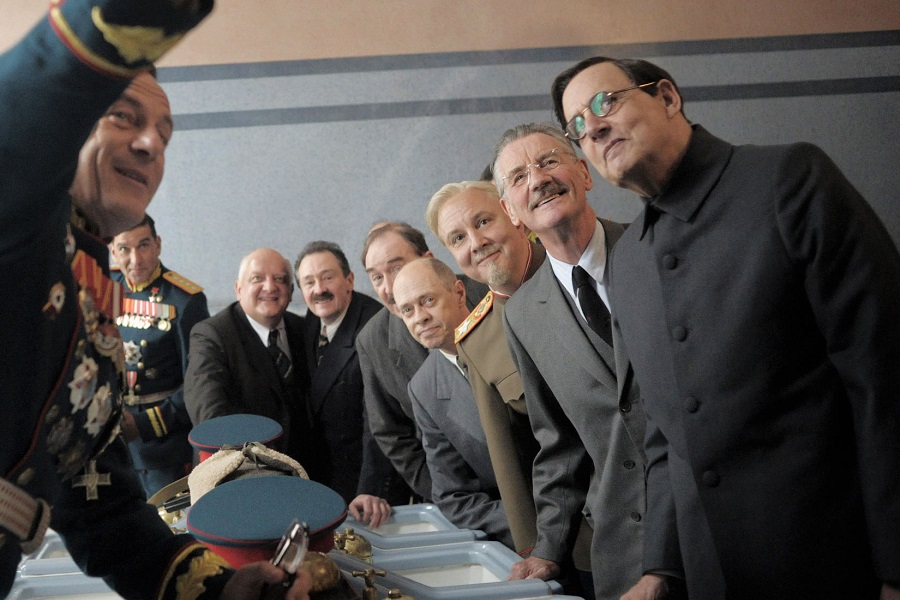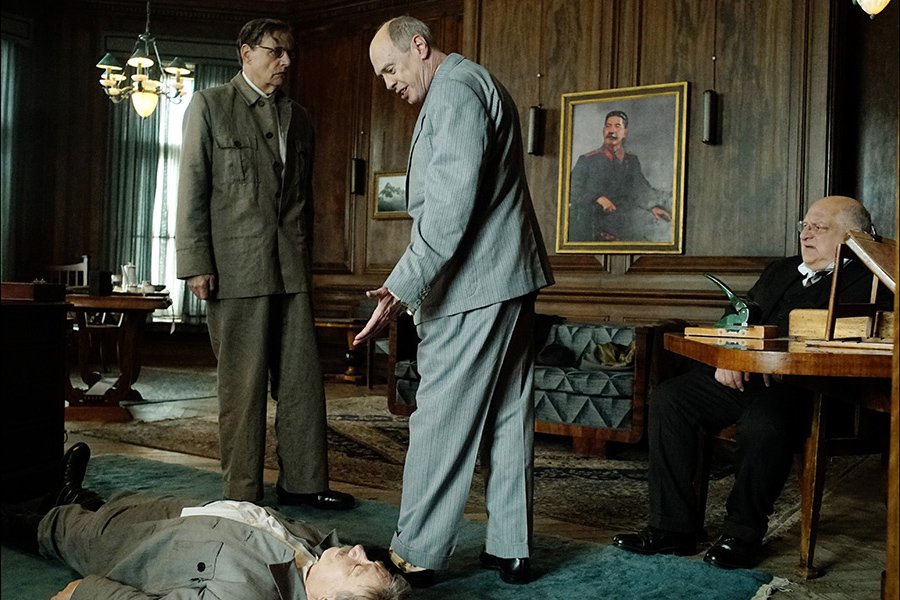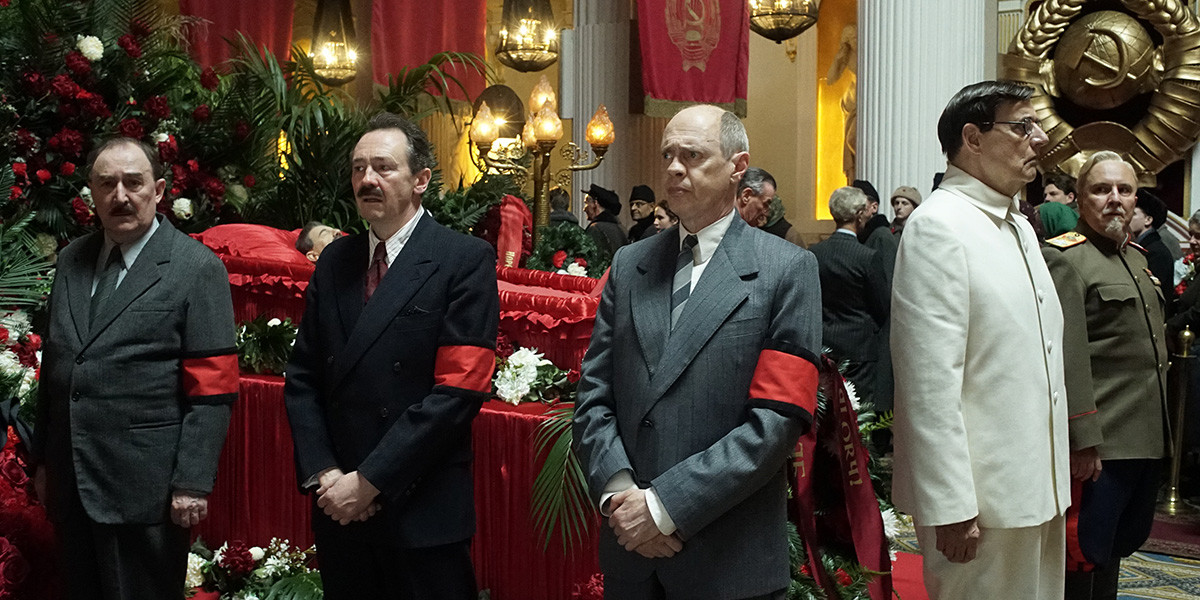At this point it should commonly be accepted that Armando Iannucci can make anything funny. After making a mockery of Politics with The Thick of it, In The Loop and Veep, he’d cornered the modern market for that specific genre. He now sets his sights to the past and does a period piece. Well, The Death of Stalin
is a period political comedy, so maybe the roots haven’t been shifted too far.
The main key ingredient though, the aforementioned comedy, is still firmly in place. While his other films have been humongous in their own right, Death of Stalin expands the arena some. That comes across in the new addition of slapstick comedy. Not just any though, as Iannuci reaches deep into the perilous well and calls upon the forces of the forefathers of the genre. Abbot & Costello may get name checked early, but the film owes a debt to both The Marx Bros & Monty Python. The latter gets literal representation in the form of Michael Palin, who steals a few scenes as Vyacheslav Molotov.

Oh, was it not mentioned the title refers to that Stalin? Innanucci & co-writers Ian Martin and David Schneider (working off the graphic novel by Fabien Nury & Thierry Robin) do a wondrous job juggling historical accuracy (or believability) and potential hilarity. It works with a staggering assemblage of actors lending their various talents throughout. Part of the initial joy comes in seeing which historical figures are played by whom. Steve Buscemi is Nikita Khrushchev. Jeffrey Tambor is Georgy Malenkov. Simon Russell Beale Lavrentiy Beria and then none other than Michael Palin is Vyacheslav Molotov.
What may seem like a strange band of misfits playing dress up as historical figures sounds like it’s to invite chaos. That exactly what it ends up being too, but in the hands of Innannucci, it’s something much more. By allowing each actor to keep their natural accent, the viewer is able to immerse themselves in the story without having to sift through what people are potentially saying. It’s a simple, but calculated move that pays off in spades.
Set directly before the titular passing, The Death of Stalin is a Rube Goldberg-esque comedy of errors. At the same time it manages to oddly stay period appropriate, exploding with sudden bursts of violence. What should seem like two elements clashing, ends up complimenting one another. The most powerful men working directly under Stalin spend the first days after his death in a constant state of “one upmanship”. Dictatorial power is flexed by man-babies as a nation looked on. While it’s set over 50 years ago, there’s a freshness to the story that resonates with the world today.

While the film could just as well get by solely on Armando Iannucci’s deft eye or directorial touches, it’s the cast that allows The Death of Stalin to become something truly special. Almost every role is filled with someone of note. Two smaller performances stand out above the rest, though. Jason Isaacs struts across the screen, in full puffed-chest bravado as was hero Georgy Zhukov. Everything about his performance is over-the-top, reveling in the ridiculous. You can see the joy brimming underneath the surface as Isaacs gets to shed his bad guy persona to play, what is basically one step away from an action hero. The other performance of note is the one more likely to get glossed over by most people.
On the other hand, Michael Palin absolutely steals every moment he is on screen as Molotov. The elder Monty Python statesmen proves that he should be the go to when one of the troop is called up to appear in a film. Blustering with misguided anger belying a doddering old man, he fails to fully grasp the changing world around him. His contribution to a simple cabinet meeting deserves to be on clip shows for years to come.
It’s astonishing that lots of the film is based on actual events that transpire. Whether on purpose or just pure coincidence The Death of Stalin feels like an incredibly timely film. There’s a great amount of joy that comes in witnessing tyrannical, evil men reduced to simpering, bumbling fools. In the darkest of times what most people need is the release that comes from laughter. Which is exactly what the world may need at this moment. That so many elements seems to work against Iannucci’s film and it still comes out a success, is a testament to what happens when people strive to make a film to, in a weird way, heal the world. The Death of Stalin isn’t just one of the best comedies in recent history, it may just be one of the best films, in some time.


